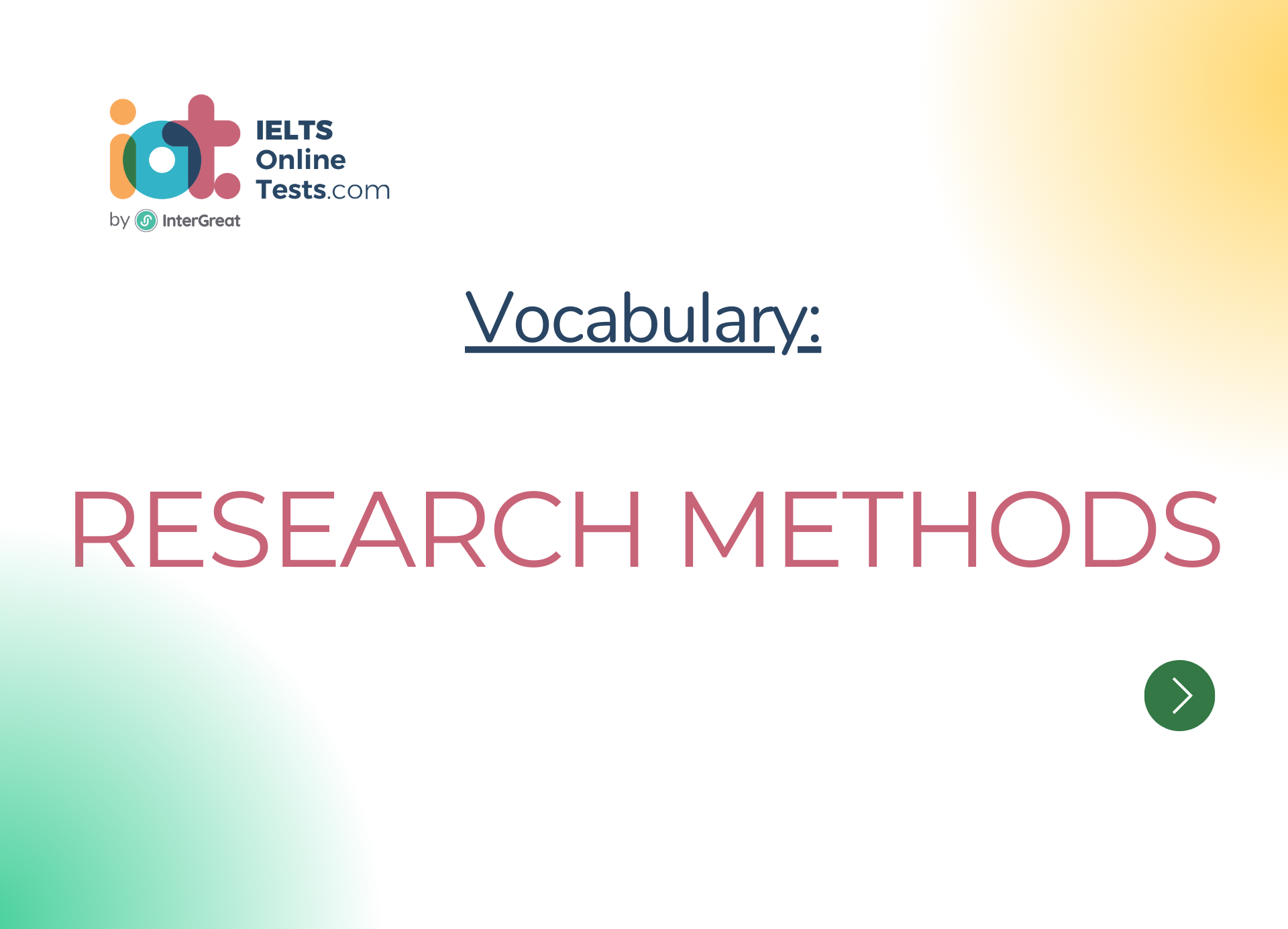
Research methods
Here are some vocabulary words related to research methods for the IELTS band score range of 4.5-6.0:
1. Research Design
Experimental Research: Studies that involve manipulating variables to establish cause-and-effect relationships.
Descriptive Research: Collecting data to describe and analyze a phenomenon as it naturally occurs.
Cross-sectional Study: Analyzing data from a specific population at a particular point in time.
2. Data Collection
Surveys: Questionnaires or interviews conducted to gather information from participants.
Observations: Systematically watching and recording behaviors in a research setting.
Focus Groups: Small, moderated discussions with a selected group of participants.
3. Sampling Methods
Random Sampling: Selecting participants from a population randomly to ensure representativeness.
Stratified Sampling: Dividing the population into subgroups and then randomly sampling from each group.
Convenience Sampling: Selecting participants based on their easy accessibility.
4. Data Analysis
Qualitative Analysis: Analyzing non-numeric data to identify patterns and themes.
Quantitative Analysis: Applying statistical methods to analyze numerical data.
Content Analysis: Systematically examining the content of texts or media.
5. Validity and Reliability
Internal Validity: Ensuring that the study accurately measures the intended variables.
External Validity: Generalizing the study's findings to other populations or settings.
Reliability: The consistency and stability of measurement instruments or results.
6. Ethical Considerations
Informed Consent: Obtaining participants' voluntary agreement to participate after providing relevant information.
Confidentiality: Safeguarding participants' identities and data from being disclosed.
Debriefing: Providing information about the study's purpose and addressing participants' concerns afterward.
7. Research Ethics
Research Misconduct: Any unethical behavior, such as fabrication or falsification of data.
Human Subjects Protection: Ensuring the safety and welfare of participants in research studies.
Plagiarism: Using someone else's work or ideas without proper acknowledgment.
8. Research Proposal
Hypothesis: A testable prediction or statement about the relationship between variables.
Literature Review: A summary and evaluation of existing research related to the study's topic.
Methodology: The plan and rationale for conducting the research.
9. Research Instruments
Questionnaire: A set of written questions used to gather data from participants.
Interview Guide: A structured outline used to conduct interviews with participants.
Observation Protocol: A predefined format for systematically recording observations.
10.Triangulation
Using multiple methods or data sources to validate research findings.
Combining qualitative and quantitative approaches to gain a comprehensive understanding.
11. Sampling Bias
Selection Bias: Occurs when certain participants are more likely to be included in the study than others.
Response Bias: Participants may respond inaccurately or dishonestly, leading to skewed results.
12. Correlation
Positive Correlation: When two variables increase or decrease together.
Negative Correlation: When one variable increases while the other decreases.
13. Statistical Significance
The likelihood that the results of a study occurred by chance is low.
P-Value: A measure of the probability that the observed results are due to random chance.
14. Inferential Statistics
Techniques used to draw conclusions about a population based on sample data.
T-Test: Analyzing differences between two groups to determine if they are statistically significant.
15. Research Limitations
Factors that may affect the validity or generalizability of the study's findings.
Sample Size: The number of participants in a study, which may impact the reliability of results.
Remember to familiarize yourself with these words and practice using them in context to improve your ability to discuss research methods effectively in an academic setting. Good luck with your language learning journey!




